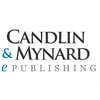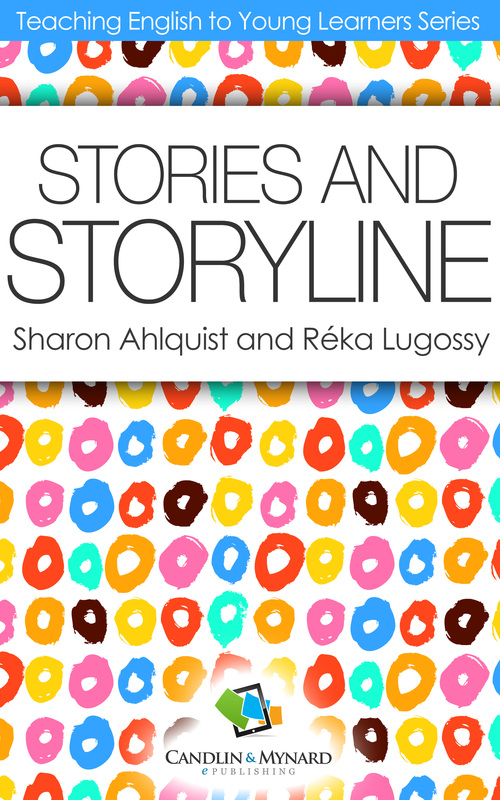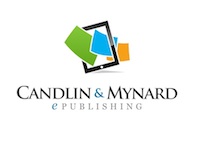A full list of the 2016 Australia Day honours can be found here.
|
We are honoured to report that the late Emeritus Professor Christopher Candlin was recognised in the 2016 Australia Day honours list. Chris co-founded the ePublishing company with Jo Mynard in 2012 which continues to operate under the leadership of Jo Mynard and Sally Candlin.
A full list of the 2016 Australia Day honours can be found here.
0 Comments
 It is with great sadness that I announce that Chris Candlin passed away peacefully surrounded by his family on Sunday 10th May 2015. Chris contributed so much to the fields of applied linguistics and professional communication, and was an inspiring and energetic friend and colleague. I feel fortunate to have known him and will be able to take Candlin & Mynard ePublishing to the next stages thanks to the foundations that we were able to build. He will be greatly missed and fondly remembered. Jo Mynard, Director and Co-founder, Candlin & Mynard ePublishing
Stories and Storyline by Sharon Ahlquist and Réka LugossyWe are delighted to announce that our first title is now in preparation! Series editor Annamaria Pinter has been working with the authors to prepare the first book in the series. Details:
Series: Teaching English to Young Learners (more details..) Title: Stories and Storyline Authors: Sharon Ahlquist and Réka Lugossy Summary of the book The role of stories is widely recognised in language teaching. Stories engage the imagination and expose the reader/listener to language patterns and to a rich array of vocabulary in context. Storyline shares these features. In the Storyline approach a fictive world is created in the classroom. Learners work in small groups over a period of typically four to six weeks as characters in a story. Working on open key questions, which drive the story and which carry the curriculum content, learners use and develop their language skills within a meaningful context. And they have fun! This book is about the power of story to engage and motivate, leading to effective learning: a programme of work based on stories and Storyline is truly learning-centred, allowing the teacher to adapt the level of the task to suit an individual learner's needs, enabling a sense of progress in the learner, enhanced motivation and continued learning. The book combines a wealth of practical ideas related to teaching with stories and Storyline, and at the same time also inspires teachers to undertake small scale explorations in their own classrooms. It is unique in its uncompromising attention to making links between everyday classroom practice, underlying theory and research opportunities that every teacher can take advantage of. Other Titles in the Series The second title in the series, Autonomy and Differentiation in the Primary Foreign Language Classroom by Kuchah Kuchah, will be published in 2015. There has been an interesting discussion on the LinkedIn group “Ebooks, Ebook Readers, Digital Books and Digital Content Publishing” over the past few months on page numbers for ebooks. The free-flow style of text allows for one of the main benefits that ebooks have over pbooks (print books), i.e. readers of an ebook are able to read it their way. You can choose your font style and size; you can choose your background; and of course, you can choose the device (Kindle, iPad, PC, etc.). In order to allow for this personal customization, ebook files do not contain page numbers. There were three interesting sub-threads on the LinkedIn discussion related to these questions: (1) Is there a need for page numbers in ebooks? (2) Are there devices and apps which allow publishers to insert page numbers?, and (3) How do you cite ebooks? The discussion has inspired us to post a blog entry on the topic and give our take on these three questions.
Is there a need for page numbers in ebooks? Ebooks are searchable, are hyperlinked, and have location numbers. Isn’t this enough? For the reading experience, we think it is. Most devices also show what percentage of the book has been read, and some even estimate how long it will take you to finish the book. Some people have noted that this does not take into account references and notes at the back of a book which is a fair comment, but isn’t this a small price to pay for the flexibility of being able to read the book your way? If a text is only available in ebook format, then we feel there really is no need for page numbers at all, but some colleagues noted that if a text is available in both pbook and ebook format and is used in an academic context, this could be problematic. For example, if a professor says “look at page 61”, students with an ebook version might be disadvantaged. We will be posting a future blog entry on how to use ebooks effectively in academic contexts, but the short response to this dilemma would be for the professor to simply read out part of the quotation or heading and students with the ebook version can refer to the same part of the text just as quickly by using the search function. Are there devices and apps which allow publishers (or readers) to insert page numbers? The short answer seems to be “no”. For a while some versions of Kindle ebooks contained page numbers which corresponded to the pbook. Contributors to the LinkedIn discussion and other groups seem to think that this was a feature only available for limited time and for limited texts. There seems to be no information on the Amazon Kindle Direct Publishing website for publishers on this matter. A group called ASI DTTF (American Society for Indexing Digital Trends Task Force) are working on a project to create “Smart Indexes” for ebooks. We will be keeping our eyes on these developments as these will greatly enhance an academic ebook. How do you cite ebooks? One of the main issues for academics is how to cite and reference an ebook text. The official APA website and a related blog has some guidelines here: http://www.apastyle.org/learn/quick-guide-on-references.aspx#E-Books http://blog.apastyle.org/apastyle/2011/06/how-do-you-cite-an-e-book.html Guidance is given on the MLA website here: http://www.mla.org/style/style_faq/mlastyle_cite_an_ebook Purdue Online Writing Lab (our preferred resource when we have referencing queries http://owl.english.purdue.edu/owl/) gives the following instructions: "...Use the following format if the book you are using is only provided in a digital format or is difficult to find in print. If the work is not directly available online or must be purchased, use "Available from," rather than "Retrieved from," and point readers to where they can find it. For books available in print form and electronic form, include the publish date in parentheses after the author's name. For references to e-book editions, be sure to include the type and version of e-book you are referencing (e.g., "[Kindle DX version]")." To save academics the trouble of looking all of this up, ebooks could contain instructions for readers who wish to cite the work. Jo has just been involved in publishing an academic ebook for IATEFL and the editors include the following helpful statement about referencing in their introduction: "How to reference this e-book: To give an ‘in-text’ reference to part of a chapter in this e-book (where there are no page numbers), you can paraphrase the selected part of text and avoid the need for a specific page reference. Alternatively, you can use the names of the major sections in which the cited text occurs, e.g., ‘… seeing them in terms of discourses of power and ideologies lets me acknowledge the heterogeneous nature of cultures and places agency strictly on the actors’ (Course, Lamb & Aoki, 2013, Part 2, Simla’s story continued, para. 8)." So, the reference for the above article in the Kindle version of this ebook would be as follows in an APA reference list: Course, S., Lamb, T., & Aoki, N. (2013). Action research: Promoting teacher/learner autonomy and improving praxis. In A. Barfield & N. Delgado Alvarado (Eds.), Autonomy in language learning: Stories of practices [Kindle version]. Canterbury, UK: IATEFL. Available from http://amazon.com. We actually don't see any point writing "Available from..." in the reference as APA guidelines suggest. Surely this is obvious and anyone can do a quick Google search for the title. It is a bit like stating the name of the physical bookshop for a pbook – as far as we know, we have never had to do this. APA are assuming ebook files are the same as websites. The manual is clearly in need of an update. We also think there's no point saying what kind of Kindle you read it on as the text will be the same. In fact, the text is the same in the ePub version too, so why the need to mention the device/reader at all? Of course, there is the need to mention that it is an e-book as this explains why no page numbers are listed as in a typical APA chapter reference. It also helps someone to find the ebook. What do you think? Do we need page numbers? How are you citing ebooks? Let us know by replying on the blog, Facebook, or Twitter. We have compiled our epublishing predictions for 2013. Many of these ideas have been echoed by others, but our interest is more specifically in academic publishing.
1. Small epublishing companies will provide serious competition to the big publishers. Smaller companies can innovate and respond to change more quickly than the larger, more established publishing companies. Smaller publishing companies will only deal with a limited number of authors and will therefore be able to provide close editorial support. We predict (and hope!) that well-known authors will be increasingly likely to sign contracts with small, niche publishers. Self-publishing will be easier in 2013 than ever before. This will mean that it will be more difficult for self-published authors to sell their books (Mark Coker, founder of Smashwords, also makes this point in his article published in the Huffington Post). As a result of this, forward-thinking authors will prefer to publish with well-connected, independent publishing companies to ensure that their work receives editorial attention and is marketed well. 2. There will be a growing number of new academic books released only in ebook format. Mark Coker predicts that 2013 will be the year when more books will be read on screens than on paper. Given the rise in sales of ebook readers and tablet devices, it makes sense for academic publishers to consider publishing only in ebook format. 3. There will continue to be an increase in ebook sales. Mark Coker predicts in that in the US, ebooks sales will form 45% of the book market. Just like the music industry, consumers will become accustomed to paying for electronic content and epublishing will become a viable business. 4. Print on demand (POD) will become cheaper and quicker. Publishers will partner with POD companies to offer consumers the option to produce print copies of their ebooks. This will appeal to readers who prefer print versions and libraries who want to make books accessible as reference texts for browsing. 5. New academic books released only in ebook format will be substantially cheaper than books that have paperback, hardback and ebook versions. It is not unusual to see academic textbooks costing 50 dollars or more. This model has been largely unchallenged until now. As ebooks cost less to produce, 2013 will see the rise in availability of reasonably priced academic books. However, academic ebooks will be priced higher than general fiction and non-fiction ebooks due to the thorough editorial and review processes involved. 6. Producing only ebook versions of academic texts will change the way books are read. We predict that ebooks will change the way in which readers engage with a text. For example, readers can use hyperlinks to move between different sections of a book and access additional multimodal material online. Additional examples can be provided at relevant points throughout the text instead of as appendices. The reader will always have the option to read the text in a linear way, but we predict that reading habits will change due to the opportunities embedded within ebooks. 7. Consumers buying print books will be given a free copy of the ebook version. Consumers have become accustomed to being able to access their movies and music from wherever they are and they will expect the same from their reading material. Although consumers like the accessibility of an ebook, they still like the look and feel of a physical book and enjoy seeing their book collections displayed on their own shelves. In order to solve the reader’s dilemma of whether to purchase an ebook version or a print version of a title, publishers still dealing predominantly in print books will provide the ebook version free. Some publications such as the Economist already offer all online content free with a print subscription. 8. New academic ebooks will be written with interactivity in mind. Publishers of ebooks will create books with a community of readers in mind. Instead of delivering facts in a top down way, new academic ebooks will invite readers to interact with the ideas and share their thoughts with the author and with other readers. Readers will contribute to online discussions and ideas can be incorporated into future editions of ebooks (with the writers’ permission, of course). Trends indicate that sales of ebook readers will decline in 2013 (see the recent article by Next Web and a report by iSuppli) as multi-functioning tablet devices become more sought after. Tablet devices increase the ease of interactivity. 9. Publishers will sign deals with device manufacturers so that consumers can buy devices pre-loaded with content. We wrote this prediction before hearing the news that Longman have just invested in Nook. We predict that in the future (probably later than 2013), instead of recommending a textbook, a professor can provide an ebook reader or tablet device pre-loaded with the appropriate texts for a given course. 10. Libraries will increase access to academic ebooks. Books available via elibraries will continue to rise rapidly. Students will have free access to required texts in ebook format through their institution’s library. This will reduce the likelihood of excessive photocopying and book piracy. 11. Previously published work will be reformatted and repackaged and sold in ebook format. We predict three ways in which previously published academic work will be made available: (1) Previously published print books will be relaunched as ebooks; (2) Out-of-print books will be republished as ebooks for new audiences; (3) Collections of previously published articles will be bundled together and sold as ebooks. Idea number 3 has already been introduced by the New York Times and Harvard Business Review, but will become popular in academic publishing from 2013. 12. eBooks will be offered to readers in cost-saving formats. Although the cost of an ebook will be less than a print book, consumers will still be looking for economical ways to access the academic texts they need. Readers will access texts freely or cheaply in 2013 in at least three ways: (1) Through institutional access to an elibrary; (2) Via a subscription to an academic ebook provider such as EBSCO; (3) By purchasing only the relevant chapter in a pay-as-you-go approach such as the one being offered by ValoBox.
We were really interested to see this infographic in the Huffington Post at the weekend. It nicely sums up where publishing is going and confirms why we are absolutely going in the right direction here at Candlin & Mynard. The infographic is full of figures about how publishers are releasing more e-books, but we have yet to see an academic publisher producing only e-books like us. Having e-books tagged onto old business models will undoubtably hold traditional publishers back. As we do not publish any print books, we really can just jump straight in and embrace this period of exciting change.
We are delighted to annonce that after a thorough review of the current market, we will be launching Candlin & Mynard e-publishing with three book series. We have some ideas of authors that we will contact.
The “Learning Languages with Technology” series explores and exploits the roles technology plays in language teaching and learning. The "Toolbox for Researching Practice in Language Study" provides a workbench of accessible, user-friendly, ‘hands on’ e-books which help the reader to understand practice through research. The object of the "Concepts, Themes and Thinkers" series is to link key authors (the thinkers) with their own work (the concepts and themes) and that of others related to theirs, so as to explore and chart the field of applied linguistics. Feel free to contact the series editors for more information. |




 RSS Feed
RSS Feed